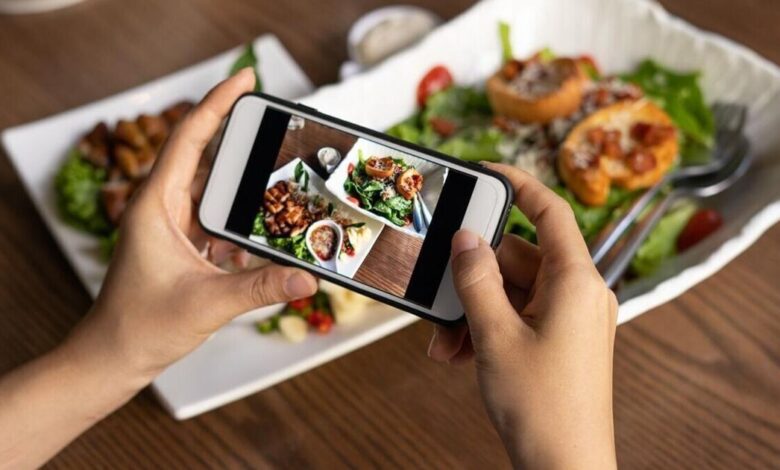
How 20 Years of Facebook Changed the Food Blogging Game | Features
In February, Facebook turned 20 years old. For two decades, this social media platform has inspired communication, influenced consumer decisions, and started trends that have created and destroyed markets.
One sector that has been greatly impacted by the emergence of Facebook and the social media boom that followed is food blogging. according to Profile treeThere are more than 32 million food bloggers in the United States alone, and 42% of them depend on advertising on social media platforms to make their living.
What once started as an attempt to share personal stories, cultural histories, and relationships with food, has now evolved into something entirely larger and perhaps also becoming more impersonal.
Where it started
The main reason to start a food blog is the love of food. More than 75% of bloggers report that they create content for personal satisfaction. Once upon a time, social media took power from the hands of a few professionals. The platforms have made it possible for everyone, from housewives to individual chefs and college students making their first bowl of instant noodles, to share their stories of culinary adventures.
However, as these blogs have grown to identify trends and influence customer behavior, they have unfortunately become more focused on creating and selling products rather than sharing stories with fellow enthusiasts and building communities.
By sharing personal and historical anecdotes related to the dishes they served, bloggers shared their love of food and stories with their readers over a period of time. This helped build communities, and kitchen tables grew to provide space for people of diverse backgrounds.
“I’ve been blogging since 2009. Before the advent of Facebook, and social media more broadly, bloggers’ writing was more geared toward storytelling. We enjoyed writing about our knowledge and the cultural and historical significance of the recipes we shared,” says Lana Stewart of Lana’s cookinga site dedicated to sharing Southern comfort foods with the world.
Stewart isn’t the only one who feels this way. when Food blogs It first appeared, and one of its important features was its focus on sharing people’s relationships with food. So, Recipes It wasn’t just recipes. They brought different cultures to the world table. Food became a catalyst for communication.
Anne Mooney, creative Food fanatic “The biggest change is that readers tend to interact with bloggers on their social media channels more nowadays than they do on the actual blog,” says one blogger from 2009. “In the early years of my blog, the comments section of my blog was its own community — the readers were They know each other by name and have been commenting and responding to each other in full in the comments section.
“I also became friends in real life with a number of blog readers at the time and with other bloggers as well because we were constantly interacting on each other’s sites. It seemed like a comfortable community.”
How are you
This sense of community and personal connection seems to have disappeared as Facebook began to focus more on the business side of the site. While bloggers today can reach different audiences, the connection with global readers through social media and personal relationships that crossed barriers and flourished in comment sections has faded over time.
Facebook’s massive push to display sponsored ads on timelines makes it very difficult for bloggers to get any organic reach. In the early days of Facebook, it was easy to stand out among your peers as long as you had strong content. There is now an over-reliance on reaching targeted consumers using sponsored ads and click-bait headlines.
Today, food bloggers spend more time on social media than ever before. However, it’s becoming more difficult to reach readers who already love the same content. As bloggers rely more on affiliate and sponsored content, the focus has shifted from easy and delicious sharing Recipes To create consumers who will buy products.
“Directly communicating with readers was much easier in the days before Facebook and other companies, like Instagram. Now, Facebook makes it difficult to connect with people who have already said they enjoy your content or reach a new audience without having to.” Relying on Ads paid or click-grab headlines,” says Alex Caspero of Delicious knowledge.
Food has always been an intricate part of society. People gather over plates of delicious dishes to celebrate different occasions, socialize and enjoy being part of the community. Traditionally, famous culinary experts would share their knowledge with the masses. Today, social media platforms have allowed individual bloggers and influencers to share the joy of cooking with others.



